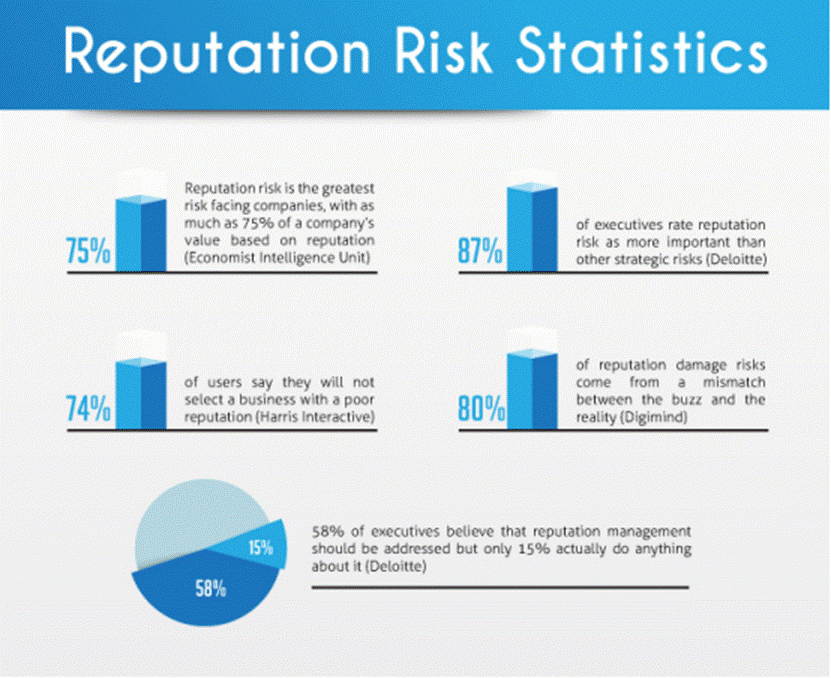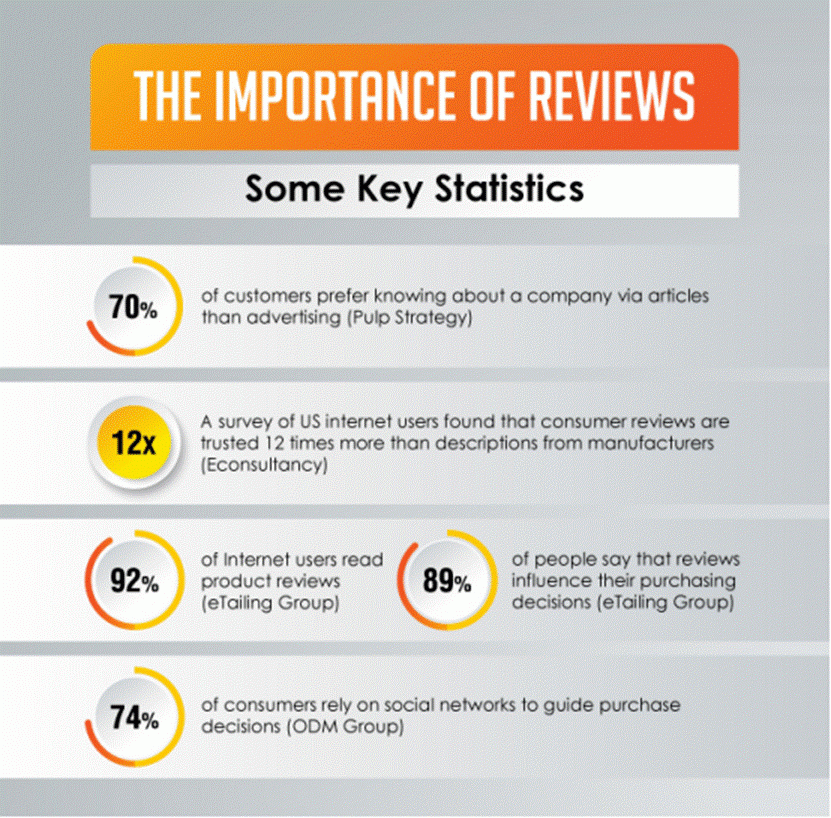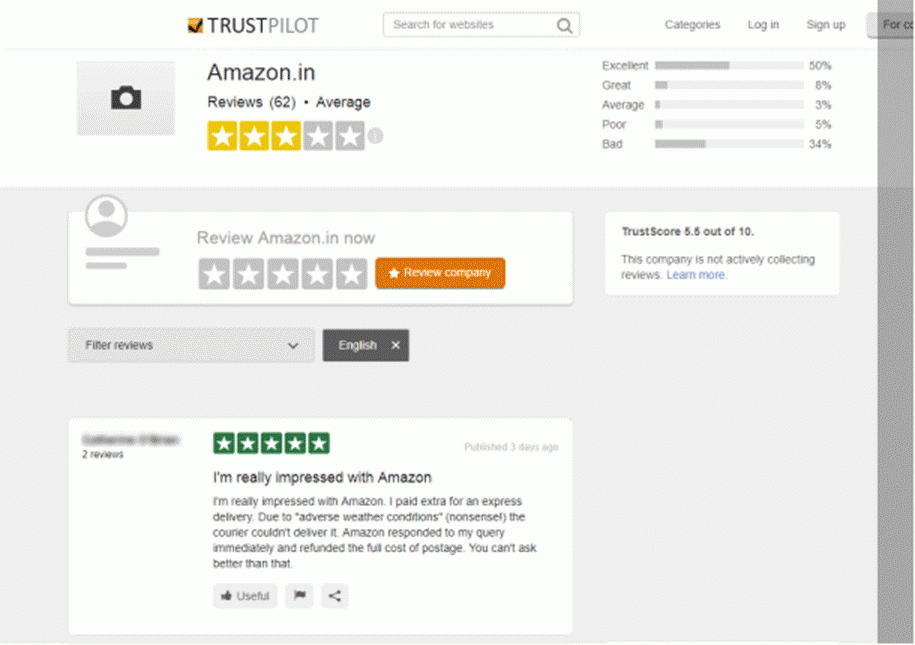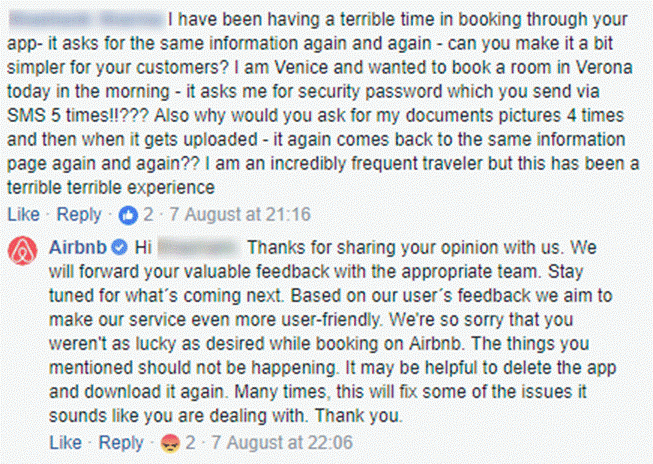“A brand for a company is like a reputation for a person. You earn reputation by trying to do hard things well”
— Jeff Bezos, Founder, and CEO of Amazon.com
If you want your business to succeed, you simply can’t ignore online reputation management. Creating and managing a good online reputation can help establish a strong brand image. Companies that neglect their online reputation risk losing potential customers.

It is essential to manage online negative reviews and feedback properly as they can be detrimental to your business. Customers use the internet to search about your products or services. This makes it important to have a good handle on what appears when someone searches for you.

Just one negative article can risk losing 22% of your customers. With three negative articles, the number rises to 59.2%. Four+ negative articles? Up to 70% of your potential customers lost.
Do The Searches Yourself
You need to see how you are viewed by people in Google search.
“Your brand isn’t what you say it is, it’s what Google says it is”
—Chris Anderson, American Journalist
So, first conduct a Google search, including searching in Google images, for your name. Remember to search in private or incognito mode to get general, non-personalized results.
Search social networks and on forums to find out what people say about you, whether good or bad. Find out if your customers are happy with your products and services, if they recommend or not.
For example, searching on consumer reviews’ website like Trustpilot can give you an idea of what people are talking about your business and how they have rated you.

Create Positive Content
To push down negative contents from the first few pages of search results, you need to continuously create positive content. By coming up with a content strategy, you can deliver your brand message to your audience effectively. You can write blog posts with attractive titles and creative images along with offering valuable information to the audience.
To build credibility for your brand, get published in top-tier publications. By having your content published on authoritative sites, you can give a boost to your online reputation. Another way to earn third-party credibility is to get your brand mentioned.
You can manage your reputation by getting your business listed on popular directories and becoming a member of social media networks. By verifying your business with Google, you can build your brand’s credibility, enabling your audience to find more about you online and offer them updated information.
Responding To Criticism
You can neutralize criticism and negative reviews by replying politely. Avoid getting into online arguments and being defensive. Accept your mistakes if something goes wrong and promise to work on it.
This is how Airbnb responded to a customer’s complaint:

When replying, keep these points in mind:
- Thank them for buying your product or choosing your service
- Apologize for the inconvenience caused
- Empathize with the person; try to understand their concern
- Give an explanation for the unsatisfactory service/product and ask what you can do to fix the problem
- Offer your customer an option to return your product
- Promise them for a better experience in future
Generally, you should post a reply to every negative comment you receive. It is, however, not necessary to reply if you think you are being trolled. Good online reputation management is not only about responding properly to what people talk about your brand, but also whether to react or not and when to react. Sometimes it is not necessary to respond, and sometimes a late reaction can lead to losses for your business.
Maintain A Brand Voice
Stay in control of the brand voice of your business on different platforms. Talk to your audience in a way they like and connect to. Adapting a brand voice that aligns with their communication style can be impactful.
Storytelling through social media is a compelling way to help customers understand your brand. Tiffany & Co. has created several successful social campaigns through the power of storytelling, evoking an emotional response from their audience.

Conclusion
“There is no advertisement as powerful as a positive reputation traveling fast.”
— Brian Koslow, Marketing Coach
Having a strong visible brand online enables better opportunities. By increasing the right kind of visibility and reducing what’s not appealing, you can put your best face forward. By seeing positive reviews, you can engage more with your audience, and if it’s a negative review, you can promptly address customers’ issues, and try to control the damage. By putting continuous efforts and cultivating your brand’s online reputation, you will not only be able to see a huge increase in positive sentiments towards your brand but also enhance sales!
* Adapted lead image: Public Domain, pixabay.com via getstencil.com
The post Branding Through Online Reputation Management appeared first on Search Engine People Blog.
(131)
Report Post







